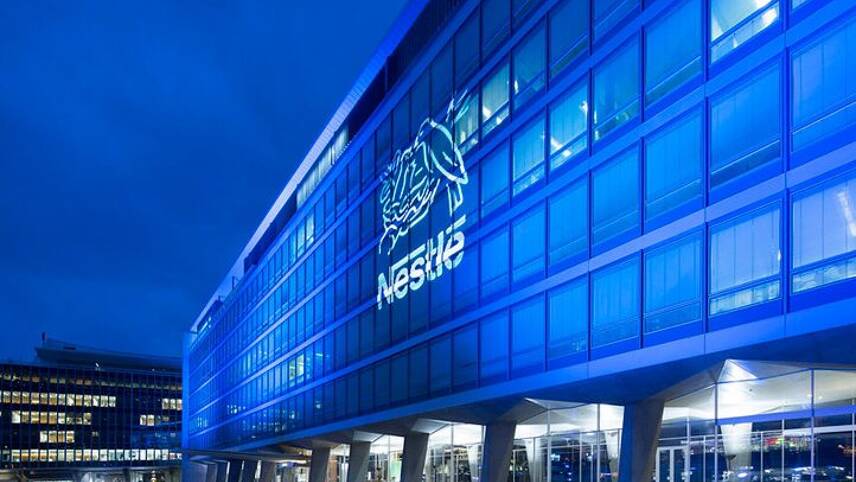Register for free and continue reading
Join our growing army of changemakers and get unlimited access to our premium content

Nestlé will use the investment commitment to spur the market for food-grade recycled plastics. Image Neste
The £1.59bn includes a £200m sustainable packaging venture to fund start-up companies with innovative packaging solutions and a £1.19bn allocation to pay a premium for food-grade recycled plastics between now and 2025.
“No plastic should end up in landfill or as litter,” Nestlé’s chief executive Mark Schneider said. “Making recycled plastics safe for food is an enormous challenge for our industry. That is why in addition to minimizing plastics use and collecting waste, we want to close the loop and make more plastics infinitely recyclable.
“We are taking bold steps to create a wider market for food-grade recycled plastics and boost innovation in the packaging industry. We welcome others to join us on this journey.”
Nestlé’s ambition is to make all of its packaging either recyclable or reusable by 2025, a target that was set publicly in 2018.
However, some plastics are difficult to recycle for food packaging use due to concerns over food health and safety. This has lead to a limited supply of food-grade recycled plastics.
The company has today (16 January) committed to reducing its use of virgin plastics by one third in the same period.
The company’s 2025 targets align with the UK Plastics Pact and the Ellen MacArthur Foundation’s New Plastics Economy Global Commitment. Nestlé is disclosing data as to how it is reducing its 1.7 million metric tonnes of plastics packaging.
“We are pleased to see Nestlé commit a £1.59bn investment toward creating a circular economy for plastics, alongside a reduction of its use of virgin plastic in packaging by one third by 2025. By eliminating the plastics we don’t need, innovating in areas like reuse models and new materials, and circulating the plastics we do need — also in more challenging food-grade applications — we can create an economy where plastic never becomes waste,” the Ellen MacArthur Foundation’s chief executive Andres Morlet said.
Progress is sweet
Since the 2025 targets were set, the company has rolled out plastic-free packaging, which is being used for the firm’s new YES! snack bar brand is made using coated paper that is classed as widely recyclable in the UK and mainland Europe. The company has also revealed plans to make all plastics packaging across its Buxton water brand with 100% recycled content by 2021.
The company is also making strides to reduce its plastics footprint internally. In January 2019, Nestlé launched a sweeping set of new ambitions related to single-use plastics. One of the key actions was that of the ‘creating a waste-free future’ pillar, meanwhile, is achieving ‘plastic-neutrality’, meaning that Nestle will finance the collection of the same amount of plastic pollution as its plastic output. The collected waste will then be sent for recycling.
The behaviour change portion of the strategy focuses on reducing the plastic footprint of Nestlé’s 323,000 employees. It includes a pledge to remove non-recyclable, single-use items from the company’s 4,200 facilities – a move which will be accompanied by a communications campaign aimed at boosting reuse and recycling rates for other items.
Globally, the company has launched a recyclable paper pouch for its new chocolate milk drink, Nesquik All-Natural powder, and has begun work to remove plastic straws from its beverage portfolio. It is also planning to launch plastic-free packaging for Milo, Nesquik and Smarties sharing bags before the end of 2019.
Elsewhere in its plastic strategy, Nestle recently joined Project STOP, a business-led initiative aiming to prevent plastic pollution from leaking into waterways and oceans across South-East Asia. Founded by innovative materials firm Borealis and blockchain developer SYSTEMIQ in 2017, Project STOP was created in a bid to tackle the 12 million tonnes of plastic estimated to be seeping into the marine environment every year.
Nestle is additionally a member of the World Animal Protection’s Global Ghost Gear Initiative (GGGI) – a collective of businesses, non-profits and public sector bodies working collaboratively to tackle the 640,000 tonnes of fishing gear abandoned in the world’s oceans each year, most of which is plastic.
Nestlé and edie’s Plastics Week
Nestlé is the headline supporting partner of edie’s Plastics Week. Running from 13-17 January, edie’s Mission Possible Plastics Week includes exclusive interviews, podcasts, reports, webinars and in-depth feature articles – all dedicated to turning the tide on single-use plastics.
On Thursday 16 January, edie will host The Business Leadership Inspiration Sessions – an afternoon of live, interactive webinar presentations and discussions from companies such as Eurostar, Nestlé and Sky.
The online event, which is free to access for all edie users and available to watch afterwards on demand, effectively combines three edie webinars into a single afternoon. Each webinar session will have its own edie chair and selection of independent expert speakers, and each session will take a particular format.
— REGISTER FOR THE SINGLE-USE PLASTICS ONLINE EVENT HERE —
Nestlé’s UK & Ireland head of sustainability Anna Turrell also provided a viewpoint for edie’s best-practice guide for businesses tackling single-use plastics.
Launched on Wednesday (15 January) the 22-page report outlines existing case studies from businesses alongside practical steps on how to turn the tide on single-use plastics.
—CLICK HERE TO DOWNLOAD THE REPORT—
Matt Mace


Please login or Register to leave a comment.